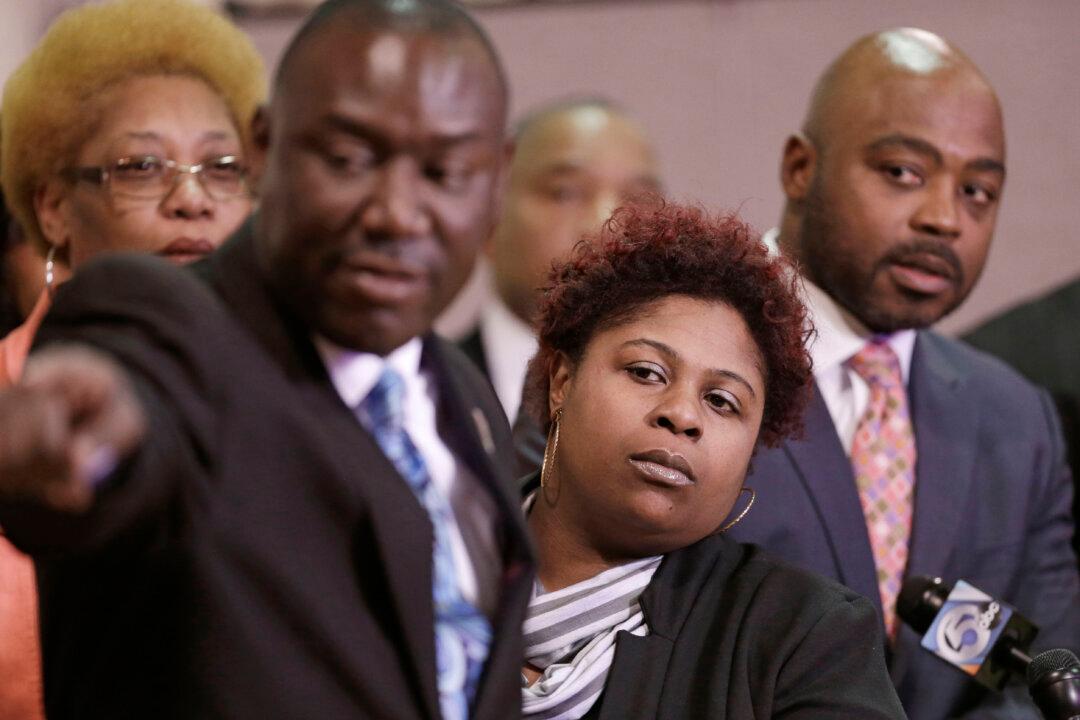The mother of Tamir Rice, the 12-year-old Cleveland boy who was shot and killed last year, called out Cleveland Cavaliers superstar LeBron James, asking him to say something about her son’s death.
Samaria Rice said she wants James to take a stand on police officers shooting her son on Nov. 22, 2014, and who mistook his toy BB gun for a real firearm.
A grand jury later chose not to indict one of the officers, prompting his mother as well as activists to cry foul. Some called on James to comment on the matter, prompting the #NoJusticeNoLeBron hashtag on Twitter, while some say the Cavs should bench James if he says something.

Detail of the jersey of LeBron James, #23 of the Cleveland Cavaliers as he takes the court against the Denver Nuggets at Pepsi Center in Denver, Colo., on Dec. 29, 2015. Doug Pensinger/Getty Images





